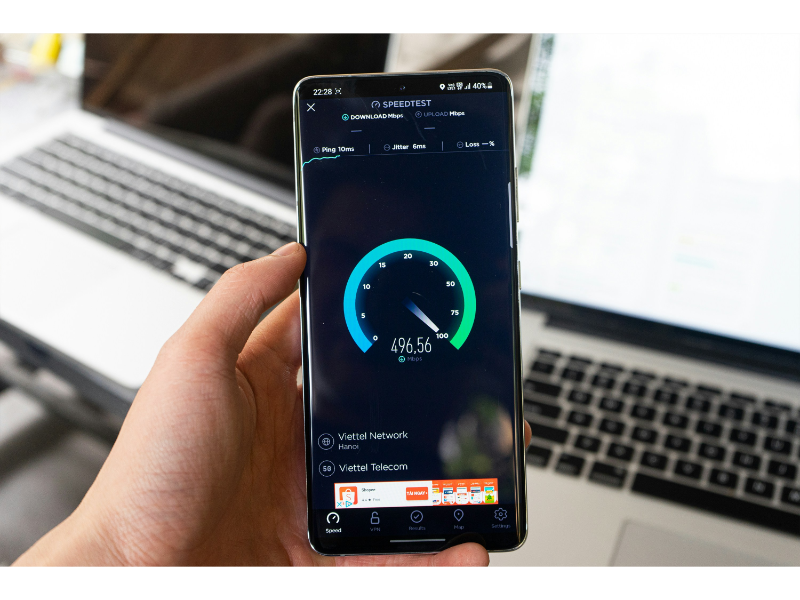- Researchers at University College London achieved a record-breaking wireless transmission speed of 938 Gb/s, using a hybrid of radio and optical signals across a broad frequency range.
- Their new method could dramatically improve wireless communication by expanding available bandwidth and avoiding congestion in traditional frequency ranges.
Researchers from University College London (UCL) have made a breakthrough in wireless communication, achieving data transmission speeds that dwarf current standards. The team, led by experts from UCL’s Electronic and Electrical Engineering department, managed to reach a staggering 938 gigabits per second (Gb/s) in wireless data transmission. To put this into perspective, these speeds are over 9,000 times faster than typical 5G download rates. The significance of this development lies not just in the speed itself, but in the way it was achieved, potentially heralding a new era for wireless technology.
What happened
The study, spearheaded by Dr. Zhixin Liu from UCL’s Electronic & Electrical Engineering department, represents a significant leap forward in wireless communication. Current wireless systems, which rely heavily on radio frequencies, are struggling to keep up with the skyrocketing demand for fast data transmission, especially in the final stretch between the user and the fibre-optic backbone of the Internet. The UCL researchers addressed this issue by employing a hybrid approach that combined radio and optical signal technologies to transmit data over a broader frequency range.
Also read: Black Myth: Wukong leads the trend of semiconductor chip industry
Also read: Conversation with Wing Cheung: The Philippines’ future in the data centre boom
By utilising a combination of electronic digital-to-analogue and optical signal generators, the researchers transmitted data across an extensive frequency range of 5 to 150 gigahertz (GHz). This resulted in a total bandwidth of 145 GHz, a figure that surpasses the previous record by more than fivefold. Traditionally, wireless technologies such as Wi-Fi and 5G operate in much narrower frequency bands, typically below 6 GHz, which can lead to network congestion. By tapping into a broader frequency spectrum, the UCL team effectively side-stepped these limitations, setting the stage for faster, more efficient data transmission.
As Dr. Liu explained, their method provides “more flexibility in accessing different frequency resources,” thus allowing for increased bandwidth without sacrificing signal quality. This not only improves speed but also enhances the reliability of wireless networks. The result is a system that can deliver speeds previously thought to be unattainable through wireless means. For instance, a 4K Ultra HD movie, which would traditionally take around 19 minutes to download over a standard 5G connection, could now be downloaded in just 0.12 seconds using their new approach.
Why this is important
This record-breaking achievement is set to revolutionise the way data is transmitted wirelessly, particularly in environments where installing optical cables is not feasible, such as industrial settings or remote locations. Professor Izzat Darwazeh, director of UCL’s Institute of Communications and Connected Systems (ICCS), highlighted the adaptability of wireless technology, emphasising its potential to replace or complement traditional fibre-optic systems. “This work brings wireless technology up to speed with the increased bandwidths and speeds that have been achieved with radio frequency and optical communication systems within next-generation digital communications infrastructure,” Darwazeh remarked.
The implications of this breakthrough extend far beyond faster mobile downloads. It could transform industries ranging from telecommunications to manufacturing, providing more reliable connections and reducing the bottlenecks that currently plague wireless communication networks. As data consumption continues to rise globally, innovations like this will play a crucial role in ensuring that networks can keep pace with demand, enabling everything from more seamless streaming experiences to faster business communications.

